Aquatic Centre Hypothetical - Melbourne
Event description
The Aquatic Centre Hypothetical - Melbourne
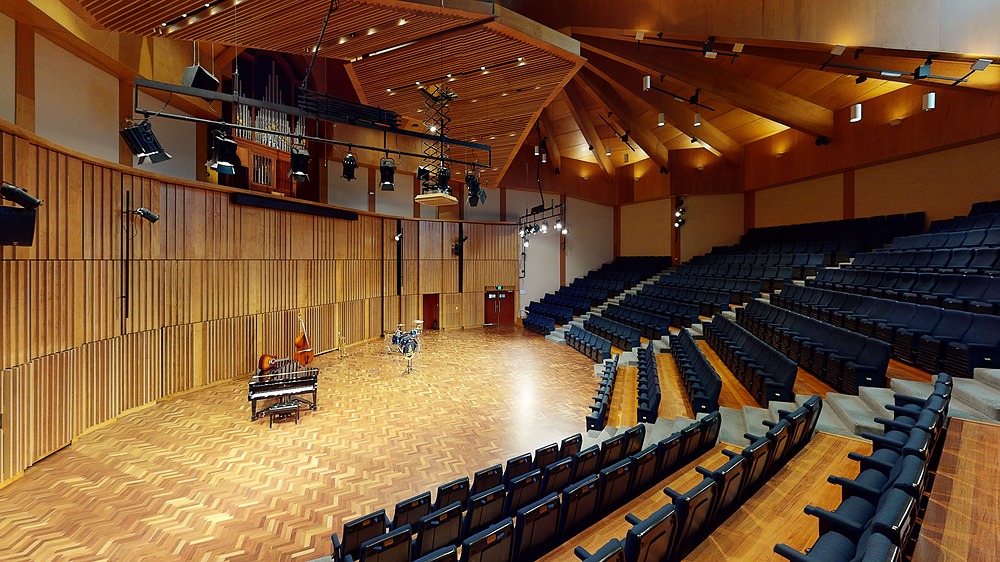
The town of Pax in regional Victoria has committed to build a new aquatic centre. Pax has a population of 60,000 people and the new Splash Aquatic Centre will be the hub of the town. The pool committee in the town has committed to build the most energy efficient aquatic centre in Australia. In this event, the hypothetical Splash Aquatic Centre will be designed in one day, with input from council staff, centre managers, engineers and architects working
at the cutting edge of these centres in Australia, NZ and the UK. Information from the event will be used to produce a comprehensive
guide for councils, engineers and architects who are planning to build high performing aquatic centres. The event is
divided into 4 sessions which feed into the final design.
SESSIONS
Session 1 - Preparing your organisation for a new aquatic centre or upgrade
This session will dive into the essentials that a new build or upgrade should consider before anyone is engaged. What are the essential guardrails that need to be put in place to ensure that the project stays on track and delivers what is promised? What are the challenges that might be faced? What are the targets that should be set to achieve the highest performing centre possible? And how do we ensure that these targets are met during the design and construction of the centre?
Sarah Bond- Climate Action Lead, Sustainable Environment and Facilities, Yarra Ranges Council
Paul Elshaug - Recreation Planner, Surf Coast Shire
Sean Keown - Senior Climate and Sustainability Officer, Surf Coast Shire
Shane Stodden - Facility, Systems and Asset Manager, SA Aquatic and Leisure Centre
Scott Smith - Technical Director - Sustainable Buildings, BECA
Session 2 - What are the elements of the ultimate aquatic centre?
Experienced centre operators and administrators work through the elements that should be included, what size they should be and what outcomes are expected in a Low Energy Aquatic Centre. These decisions form the basis of the centre design for sections 3 and 4.
Barry Harrison - General Manager Aquatic Facilities, WynActive
Cameron Giles - Swim School, Sales and Services Manager, WynActive
Alek Olszeski - Manager, Aquatic Industry Services, Life Saving Victoria
LUNCH
Session 3 - Engineering a Low Energy Aquatic Centre
Engineering for high efficiency is critical for a Low Energy Aquatic Centre. To quote the latest IPCC report-
"Put Climate Change at the heart of all decision-making". If we are serious about this in aquatic centres, that
means we need to work out the engineering first, before we get too involved with the shell of the building as the engineering is where most of the energy is lost in existing centres.
Stephen Platt - Engineering Lead for the St Sidwell's Aquatic Centre (Exeter UK), ARUP Manchester UK
Richard Stokes - Sustainable Buildings Leader, ARUP VIC and SA
Nick Yannakis - Technical Director and Business Director of Aquatics, BECA
Rick Edwards - Director, Environmental Technology Solutions
Alan Pears AM - Senior Industry Fellow at RMIT, Fellow University of Melbourne
Session 4 - Designing the Ultimate Aquatic Centre
What would the most energy efficient aquatic centre in Australia look like? This interactive session will answer this question as the presenters piece together the essential elements that make up a Low Energy Aquatic Centre and design a centre with input from the room. This session will 'start at the finish' with the outcome of producing an aquatic centre that is close to Net Zero that suits the needs of Pax residents.
Tammy Beck, Executive Director, Williams Ross Architects
Stephen Maxwell, Director, Williams Ross Architects
Michael Cook, Principal, Hunt Architects, Sydney
Zak Irfan, Technical Lead, Hunt Architects, Sydney
PRESENTERS
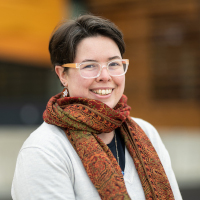
Sarah Bond
Climate Action Lead - Resilient Environment, Yarra Ranges Council
Starting as a secondary science teacher, Sarah shifted into sustainability education over ten years ago. Inspired and passionate about the environment, Sarah has worked on diverse sustainability initiatives through numerous different roles and projects. In 2021, Sarah shifted her focus to environmentally sustainable design and greenhouse gas accounting at Yarra Ranges Council. She now works as the Climate Action Lead, managing a team to deliver energy resilience and sustainable design projects for the Yarra Ranges Community. Inspiring others to make sustainable decisions is a key part of her work in supporting the transition to a low carbon future.
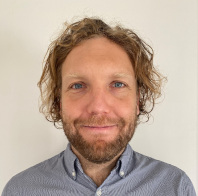
Sean Keown
Senior Climate and Sustainability Officer, Surf Coast Shire
Sean is a civil engineer and environmental sustainability practitioner with a passion for climate action and the environment. He has worked in local government and consultancy, delivering projects that help communities and organisations reduce emissions and adapt to our changing climate. Sean is living on Wadawurrung country in Geelong and has recently been involved in embedding environmental sustainability considerations into the design of an aquatic centre proposed for Torquay.
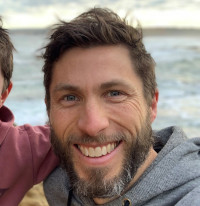
Paul Elshaug
Recreation Planner, Surf Coast Shire
Paul has over 15 years experience in Local Government roles including social infrastructure planning, project management and facility management, with experience in aquatic and health centres both as a project manager and planner. Paul’s current role sees him heavily involved in the current planning phase of the Surf Coast Aquatic & Health Centre and will continue this involvement through the design and delivery phases of this exciting project. Paul has a strong interest in positive ESD outcomes from all projects, but particularly this one as Surf Coast Shire Council’s largest ever capital project, and a flagship project to deliver on the organisation’s recently adopted environmentally sustainable facilities policy.
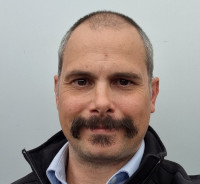
Shane Stodden
Facility, Systems and Asset Manager. SA Aquatic and Leisure Centre
Shane has 25 years of experience in the Sports and Recreation industry. In his current role with YMCA Victoria he overseas the Assets, Maintenance, and IT for SAALC. The SA Aquatic and Leisure Centre is home to Australia’s largest single site swim school and is also an Olympic training venue and major event facility. It holds 10 million litres of water and has a seating capacity for 5000 people. The SAALC has hosted three consecutive National Trials and has produced multiple Olympic medals for Australia through its high-performance program. Shane’s role is both hands on and strategic by delivering operational support and capital works programs with a focus to increase participation and revenue within the business.
In his time with SAALC he has managed projects including integration of the pool management system into the existing BMS. A key project was the integration of the BMS, Security and CCTV networks to improve system programming and response as well whilst reducing long term asset replacement costs. This system now can alert via the security monitoring company and trigger CCTV actions. Trend logging was able to show that set points were wrong and energy was saved by simply changing them. The integration of everything onto one physical network has reduced the hardware within the building by around 30%.
Shane is passionate about Sports and Recreation strategy and facility design. Shane is working with the SA government and LGA’s to ensure energy efficiency is at the beginning of the design phase.
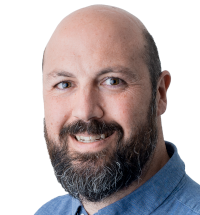
Scott Smith
Technical Director - Sustainable Buildings, BECA
Scott is a sustainable buildings engineer who specialises in translating client sustainability and climate change commitments into the design of building infrastructure, architecture, structures, and systems. Scott has extensive experience in sustainability certification, building physics, carbon analysis, mechanical engineering, and climate vulnerability assessments. Scott helps clients identify their key sustainability drivers and focuses design teams on the best opportunities. Scott is also the principle author of New Zealand's Property and Construction Sector climate scenarios which help organisations understand their climate futures and decarbonisation trajectories over the next 70 years.
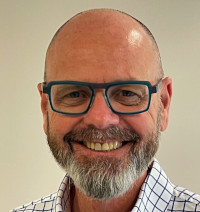
Barry Harrison
General Manager Aquatic Facilities, WynActive
Barry has been associated with the aquatics industry for over 30 years and has managed large local
government owned facilities including leisure centres, stadiums, event centres, and convention
centres. In his current role as General Manager of Aquatic Facilities, Barry oversees all operations at
the large regional leisure centre AquaPulse and the Werribee Outdoor Pool. He brings a
wealth of knowledge to the role having worked as a consultant, a teacher, and as an organisational coach in
government, not-for-profit, and commercial organisations. Barry holds a Bachelor Degree in Education
and a Graduate Diploma in Innovation and Service Management. He is also the co-chair of
the Local Government ARV Facility Management Standing Committee and a member of the LSV Aquatic
Education and Industry Engagement Council.
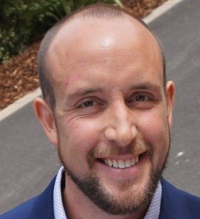
Cameron Giles
Swim School, Sales and Services Manager
Cam joined the Aquatics and Recreation industry 15 years ago as a personal trainer and group fitness instructor. From there, he has held a variety of leadership roles across three major municipalities including managing four aquatic facilities. Cam is currently the Swim School, Sales and Services Manager for Western Leisure Services where a key part of his role is driving the strategic direction for the Swim School program as well as other departments. Cam gets out of bed every morning to work with a passionate team who are driven by the crucial impact they have in the community.
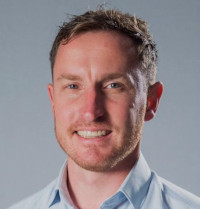
Alek Olszeski
Manager, Aquatic Industry Services, Life Saving Victoria
With extensive experience in aquatic safety, risk management, compliance, and training, and a passion for creating
a culture of safety and continuous improvement in the industry. He is a skilled communicator with a talent for building strong relationships with stakeholders at all
levels of an organisation. Alek is passionate about creating a culture of safety and continuous improvement in the
aquatic industry, and has a proven track record of achieving outstanding results in this area.
Prior to joining Life Saving Victoria, Alek held a number of leadership positions in the aquatic industry, including
as an Aquatic Operations Manager, Health Safety & Environment Manager, and Assets & Infrastructure Manager. In
these roles, he was responsible for managing the day-to-day operations of facilities including all aspects of
plant and facility management, developing and implementing safety protocols and training programs, and ensuring
compliance with industry regulations.
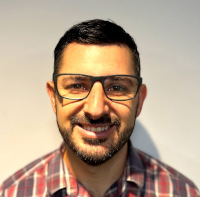
Nick Yannakis
Technical Director and Business Director of Aquatics, BECA
Nick has recently moved to BECA. It was in the early stages of Nick’s career that he identified a need for more efficient aquatic engineering services in New Zealand. Nick has since directed his career toward bettering the design and functionality of many aquatic and recreational complexes.
Nick’s point of difference over competitors is his in-depth knowledge and understanding of the principal drivers in aquatic facilities. The variables involved in such facilities are different to that of a typical building. In short, aquatic facilities are energy intensive buildings that are made even more complex by the large, chlorinated bodies of heated water. Understanding the key energy drivers in not only the design of the facilities but also operating them has become a passion. Nick’s knowledge has become invaluable to his clients and to many other industry leaders, who regularly employ him on a consultant basis knowing that his aquatic expertise is unrivalled.
It has been this aquatic knowledge that has enabled Nick and his team to help numerous councils throughout New Zealand to create decarbonisation strategies across their network of facilities as well as understand and improve systems within existing facilities. The team has recently moved to BECA to bring their knowledge and skill set into the Australian market already working with several councils in Victoria.
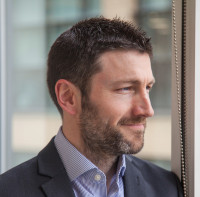
Stephen Platt
MEP Engineering, Associate at ARUP, Manchester UK
Stephen leads the Building Engineering Services team in Arup's Liverpool office, UK. He has 20 years’ experience in project management, design and supervision of engineering services for a wide variety of new build and refurbishment projects.
Stephen has particular specialisms in swimming pool design and in science laboratory and engineering facilities. He is regularly called upon to provide technical support and peer review for high profile swimming and leisure facilities in the UK and globally, and recently led the multi-disciplinary engineering design for the UK's first Passivhaus Leisure Centre, St Sidwell's Point.
https://www.exeterleisure.com/...
Stephen has led the engineering design for a number of high profile laboratory schemes in the UK, including the mechanical design for a new £350m Engineering Campus Development in Manchester, one of the single largest construction projects undertaken by any higher education institution in the UK. Issues of process energy consumption, corrosion, materials selection, user experience and controls integration are among the many common topics in which Stephen is able to bring together best practice from across these two diverse building typologies.
In 2014, Stephen took a three month leave of absence from Arup to work in a Dalit community in rural Nepal to develop a new drinking water supply system. He has since returned to the country to assist Arup's work on a similar water supply scheme which also utilised Stephen's water treatment experience gained from his work in the swimming pools sector.

Richard Stokes
Sustainable Buildings Leader, Arup - VIC and SA
Through a Masters in Engineering with Honours in Architecture and Environmental Design at the University of Nottingham, UK, Richard developed a passion for sustainable building design which bridges engineering and architecture. For the past 10 years Richard has worked in the UK, UAE and Australia and is an advocate for better design, using digital tools to create better outcomes for projects and clients.
Richard has held several industry roles including with CIBSE and the Australian Passive House Association whilst he is also a regular presenter at conferences across Australia including Green Building Day, TEMC, the Future of HVAC and Green Cities. With this influence and across his projects, Richard is changing the way the industry defines and delivers best practice to improve sustainable outcomes.
Recent projects include leading the sustainability for the new innovation precinct at the University of Melbourne - 'Melbourne Connect', where the industry leading approach using parametric design and building envelope optimisation has led to the precinct being designed to significantly improve upon standard practice in Australia.
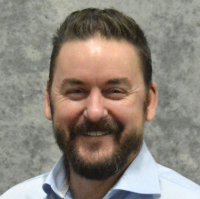
Rick Edwards
Director, Environmental Technology Solutions
Rick Edwards is the founder and director of Environmental Technology Solutions Pty Ltd, a company that specialises in designing, manufacturing, supplying, and installing complete systems and unique technology solutions in compliance, energy efficiency, and renewable energy. With a background in Mechanical Engineering and years of practical experience in Technical Products, Emissions Treatment Systems, and power generation, Rick's core skills are thinking differently around scenarios and proposing potential solutions that make sense to all parties on a project.
Rick's passion for innovation, energy efficiency, and the environment has helped ETS deliver complex project outcomes embracing the latest available technologies. Over the last 18 years, Rick has been a leader in the development and implementation of emerging thermal storage and energy recovery systems for Australia and South East Asia. The ETS mission is to innovate for true sustainability, creating whole-of-life solutions that encompass make, use, recycle, and reinvent. Their collaborative approach, deep industry knowledge, and valued technology and financial partners have enabled ETS to deliver projects that provide innovative business solutions that deliver on their clients' goals and more.
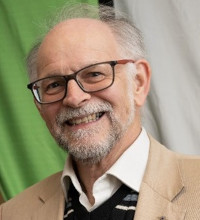
Alan Pears AM
Senior Industry Fellow at RMIT, Fellow University of Melbourne
Alan originally trained in engineering, then education. He was co-author and co-editor of the seminal book 'Seeds for Change' – creatively confronting the energy crisis in 1978. He ran Melbourne’s Energy Information Centre and worked for the Victorian government until 1991. During this time he led development of Victorian appliance energy labelling and Australia’s first building insulation regulations, among many other projects. In the 1990s he co-established the consulting business Sustainable Solutions, developing climate and energy efficiency policy and programs, and developed the framework for what is now NABERS. With RMIT’s Centre for design he worked on technical design of Australia’s first 6-star dishwasher and a drink vending machine 60% more efficient than those on the market.
From 2000 to 2015 Alan taught and researched part-time at RMIT while developing and helping to implement major industrial energy efficiency programs – Energy Efficiency Best Practice and Energy Efficiency Opportunities, and working on several commercial and residential green building projects. Alan is now a Senior Industry Fellow at RMIT, Fellow University of Melbourne and ‘thought leader’ for Australian Alliance for Energy Productivity, who he has worked with since 2016. He provides policy and practical advice to industry and community groups. Alan’s interest in aquatic centres began in the 1990s when the focus was on solar thermal heating and cogeneration. He was a member of the review panel for Jonathan Duverge’s 2019 leading edge PhD thesis on aquatic Centres.
Through his work on heat pumps with A2EP, he became interested in aquatic centres and published an article in Ecolibrium in September 2019. Since then, he has contributed to several A2EP seminars on aquatic centres and heat pumps (see a2ep.org.au) and assisted with a student studio program on aquatic centre design with i-Hub at University of Melbourne.
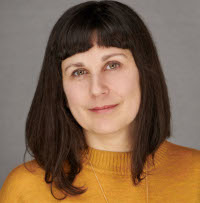
Tammy Beck
Executive Director, Williams Ross Architects
Tammy joined WRA in 2004 becoming Executive Director in 2020. Tammy has exceptional communication, consultation and analytic skills, and a finely honed design sense. She leads Design Review and people management at WRA and drives WRA management excellence. Tammy is passionate about community facilities including aquatic, sport and urban design projects, specialising in pre-design briefing, master planning and concept design phases. Her passion for community and stakeholder engagement leads to people-focussed and place-based design outcomes.
Recent experience includes delivering the Brimbank Aquatic and Wellness Centre with WRA Director Stephen Maxwell. Tammy’s passion for social sustainability and understanding of social needs enabled Council to deliver on their aspiration for an aquatic centre as a preventative health Community Hub. BAWC has become an exemplar model for achieving high environmental and social sustainability outcomes.
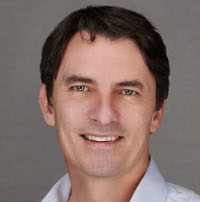
Stephen Maxwell
Director, Williams Ross Architects
Steve joined WRA in 2001 after 15 years in the construction industry. He became a Director in 2018, manages CAD, BIM and IT systems and is responsible for design development, contract documentation and contract administration on a wide range of projects for WRA. An excellent communicator and perceptive thinker, he creates productive working relationships with all project participants. Steve’s expertise in three-dimensional modelling, documentation and BIM systems as applied to construction projects is critical to the successful delivery of WRA's most
complex projects.
Recent experience includes delivering the Brimbank Aquatic and Wellness Centre with WRA Director Tammy Beck. Stephen was intimately involved in the design and construction outcomes required to deliver Australia’s first 6-star Green Star aquatic centre. He is building on this experience with subsequent centres and is passionate about achieving more sustainable aquatic outcomes balanced with operational excellence.
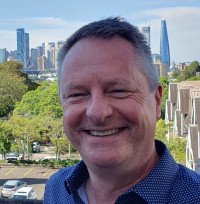
Michael Cook
Principal, Hunt Architects, Sydney
Michael has over 15 years experience in the design, documentation and construction delivery of both public and private aquatic projects. A Principal and senior member of Hunt's Studio team, Michael has worked in Singapore, USA and Australia on a broad range of unique projects, with his more recent focus being on aquatic sporting and leisure, correctional and justice, and complex industrial projects.
Michael is passionate about seeking design solutions that go beyond the business-as-usual mentality, particularly when this comes to the energy efficiency and sustainability aspects of the built environment. Michael has a keen understanding of the drivers that deliver sustainable outcomes for aquatic centres as evidenced by the energy efficiencies and extremely low Energy Usage Intensity (EUI) value established with the Fit2Swim Swim School in Maroubra, Sydney; currently the lowest measured energy usage of an aquatic facility in Australia. Michael has been instrumental in the development of an ESD matrix for Paul Sadler Swimland centres in Victoria that has won awards in the Aquatics Industry.
Michael’s understanding of building systems and performance, together with the knowledge base of Hunt Architects 50+ year history allows for the development of retrofit strategies to improve the performance of building envelopes.
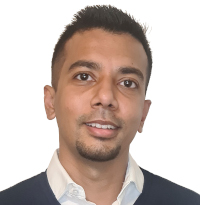
Zak Irfan
Technical Lead, Hunt Architects, Sydney
Since graduating from the University of Technology, Sydney, Zak has been mentored by Michael Cook in the art and technology of high-efficiency aquatic centres. Instrumental in the delivery of Fit2Swim Swim School, Zak has developed expertise in the design, documentation, and delivery of high-performance centres. Zak has continued to hone his skills with the ongoing program of sustainability upgrades to Paul Sadler Swimland including Carrum Downs (winner of the ASSA Sustainability Award), Narre Warren, Hoppers Crossing, and Parkwood Green. Zak is currently working on energy efficient aquatic and sporting centres for the Geelong Sports Hub and Amberlee Holiday Park. Utilizing 'waste' energy and energy recovery systems these projects simultaneously heat and cool zones of the building depending on their function to target an EUI (Energy Usage Intensity) that exceeds the outstanding results Hunt Architects achieved for Fit2Swim.
Zak enjoys the challenge of design and documentation of these complex building types and draws upon his industrial and health background to draw in technical knowledge of specialised plant & equipment; hygiene; and robust material suitability.
Tickets for good, not greed Humanitix dedicates 100% of profits from booking fees to charity


